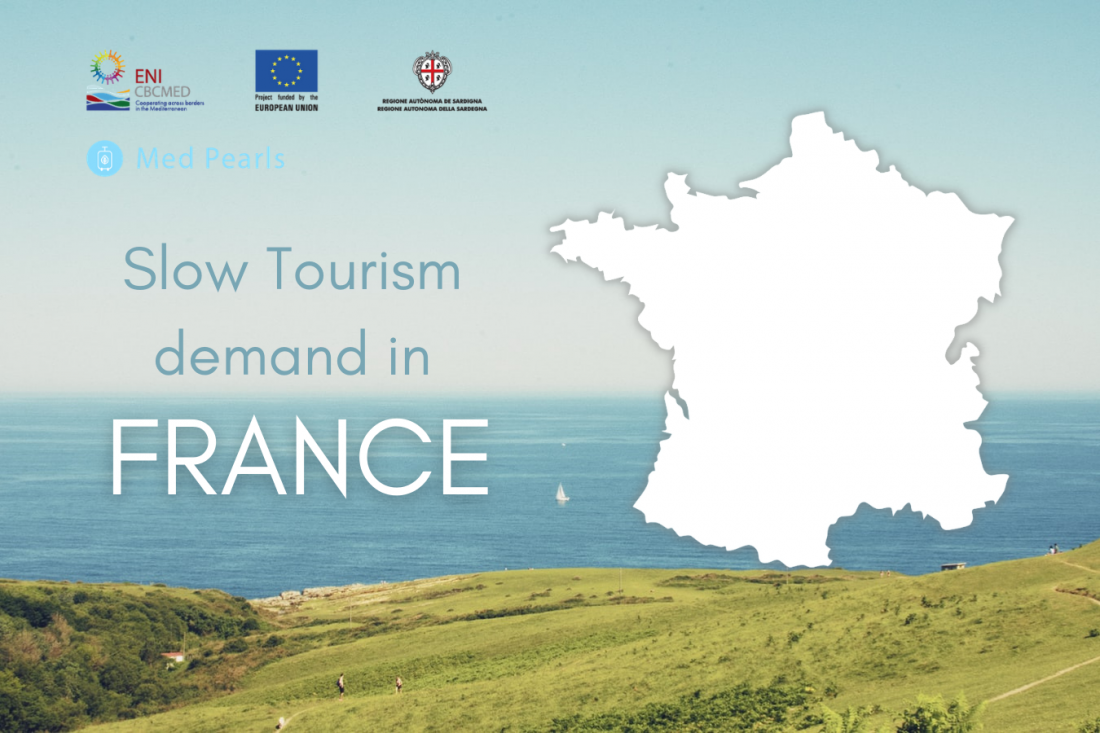Med Pearls: حقائق رئيسية عن فرنسا كسوق محتملة للسياحة البطيئة

المحتوى متاح باللغة الإنجليزية
In order to gather strategic information to internationally position the Mediterranean as an integral destination to experience Slow Tourism, the Med Pearls project developed a series of market researches on the international demand for Slow Tourism: the ‘Research study on Slow Tourism international trends and innovations’ and the ‘Analysis of the Slow Tourism International Demand’. The main goal of these studies is to help tourism agents in the creation, promotion, and marketing of slow tourism products in their regions; by reaching knowledge on the main specialised tour-operators, media channels of promotion, and commercialisation platforms in different out-bound markets. Thus, inspecting how the demand of slow tourism products is structured in 7 international markets relevant to the Med Pearls destinations: France, Germany, Netherlands, Sweden, Switzerland, UK and US.
In upcoming articles, we will reveal the main outcomes, discoveries, and highlights of each outbound market. To start with, and given its relevance in the Mediterranean region, the first market we will talk about is France.
With a population of almost 68 million people, France ranks globally in fifth place for tourism expenditure and second in the list of tourism outbound markets towards the countries of the Med Pearls. In 2017, the number of trips taken by French travellers per year averaged around 3.9, and 56% they travelled overseas. They usually spent 2 weeks during summer holidays and the average holiday budget was of 2.201€. Most of those holidays were focused on the discovery and respect of nature, and clear trend for avoiding tourist activities which increased pollution was shown.
Regarding the arrivals of French Tourist at the Med Pearls countries, the research shows that in 2018 the most popular destinations were Spain (11 million arrivals), Italy (7,6 million arrivals), Greece (1,5 million arrivals) and Egypt (217k thousand arrivals). Furthermore, in the market we can find two clear and dominant customer profiles that can match the slow tourism philosophy: the hiker profile and the explorer profile (detailed thoroughly in the research).
One of the main highlights of the market has been the large number of tour operators that already sells “slow tourism products”. Among these ones, the research found out that the tour operators most specialized in this kind of products or those with a “slow” philosophy are usually small or medium-size companies. Which present interesting opportunities to offer and design tailor-made products related to “slow tourism”. Many of the tour operators analysed were already conscious about working on developing slow and sustainable actions and products. Furthermore, it is particularly interesting the fact that an important number of these tour operators have cross-selling in Belgium, Switzerland and Canada.
Regarding fairs, in France there are no travel fairs dedicated solely to Slow Tourism. However, the research found that more and more fairs have sections and stands dedicated to “responsible tourism” or “sustainable tourism”. Like with tour operators, the smallest fairs are the most specialized and often the ones with a dedicated section on responsible tourism. As an example, the Salon du Randonneur, in Lyon, is one of the most important European fairs in the sector of walking and hiking tourism.
Besides these outcomes, the reader will find that the research also developed an intuitive guide of recommendations to help in the creation of slow tourism products and how to get tour operators interested in their “slow destinations" and products. For further information on this topic, the France market analysis, or the other studies done, you can check the links below:
- France - Slow Tourism International Demand
- Market research on Slow Tourism Demand
- Manual and Analysis of the Slow Tourism International Demand
- Recommendations - Slow Tourism International Demand







